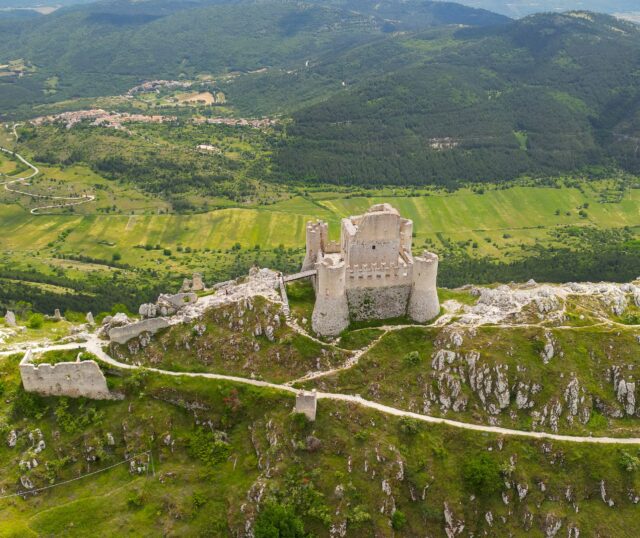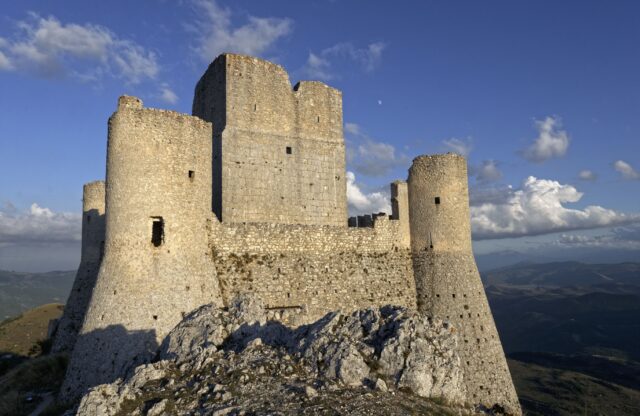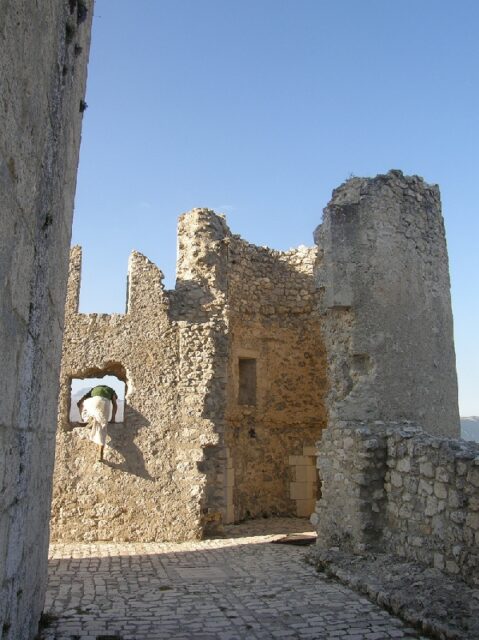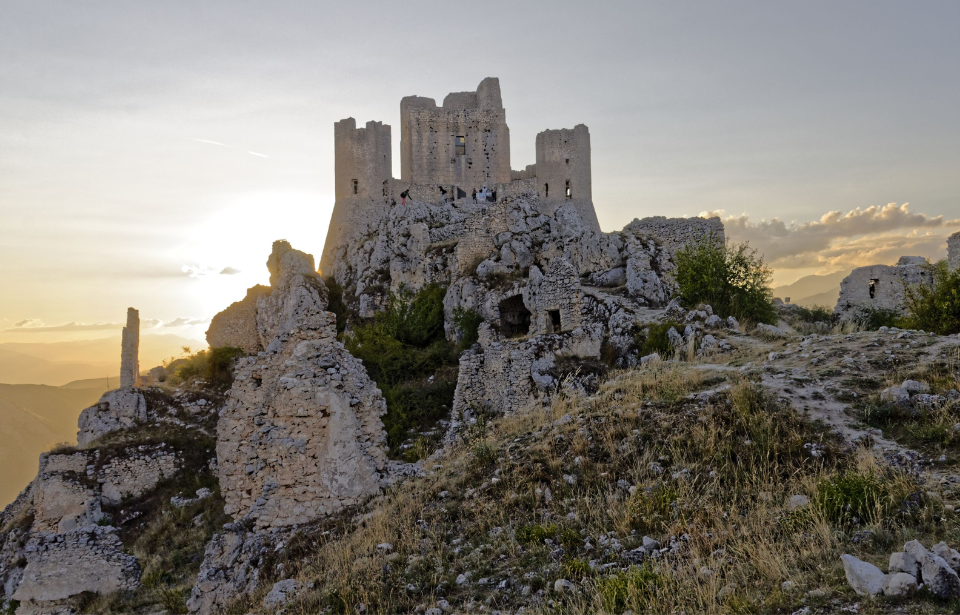Sitting atop a mountain in Abruzzo, Italy, is the Rocca Calascio. For centuries, this stone fortress has looked out over the Italian countryside, but it has long sat out of use. What remains of the rocky structure following a devastating natural disaster has become a popular tourist site among visitors to the area.
Rocco Calascio was built with one purpose in mind

Located in the picturesque municipality of Calascio in Abruzzo, Italy, stands the mountaintop fortress of Rocca Calascio, perched at an impressive elevation of around 4,790 ft, making it the highest fortress in the Apennines. Constructed entirely of stone and masonry, this fortress was purpose-built for military use rather than as a noble residence or as a place of protection for nearby civilians. Its strategic location offers commanding views over the Plain of Navelli, situated at one of the loftiest points in the ancient Barony of Carapelle, making it an ideal military point.
The fortress’s origins trace back to the 10th century when it began as a solitary watchtower. However, over time, several expansions occurred, culminating in the 13th century with the addition of a walled courtyard featuring four cylindrical towers surrounding a taller inner tower.
It has two distinct construction zones

Remarkably, Rocca Calascio exhibits a distinctive construction technique, with the lower half constructed using notably larger stones compared to the upper sections. This design likely served to fortify its base against potential invaders, although the fortress never faced actual battle. Not only do the stones appear different in size, but they also have a distinct color difference that clearly outlines the change in construction.
While the structure never sustained any damage from battle, the fortress did take a big hit following a major natural disaster. In November 1461, Rocca Calascio suffered significant damage from a powerful earthquake, estimated to be between a magnitude of seven to eight on the Richter Scale. Following the event, the nearby town of Calascio was rebuilt, but the fortress remained largely unrepaired, standing as a weathered testament to its tumultuous past.
It has been featured in films

The structure has not been entirely left to the forces of nature. In fact, it has gained cinematic acclaim, serving as a captivating backdrop for several notable films. Its rugged and ancient charm was first immortalized in the 1985 film Ladyhawke, starring Michelle Pfeiffer and Matthew Broderick, followed by a feature in The Name of the Rose the subsequent year, starring Sean Connery. In more recent times, Rocca Calascio graced the scenes of the 2010 film The American, starring George Clooney.
More from us: The Touching History of Phoenix, Arizona’s Mystery Castle
Beyond its historical and architectural significance, this mountaintop fortress continues to captivate imaginations both on-screen and off, drawing visitors to marvel at its majestic silhouette against the Abruzzo skyline.
